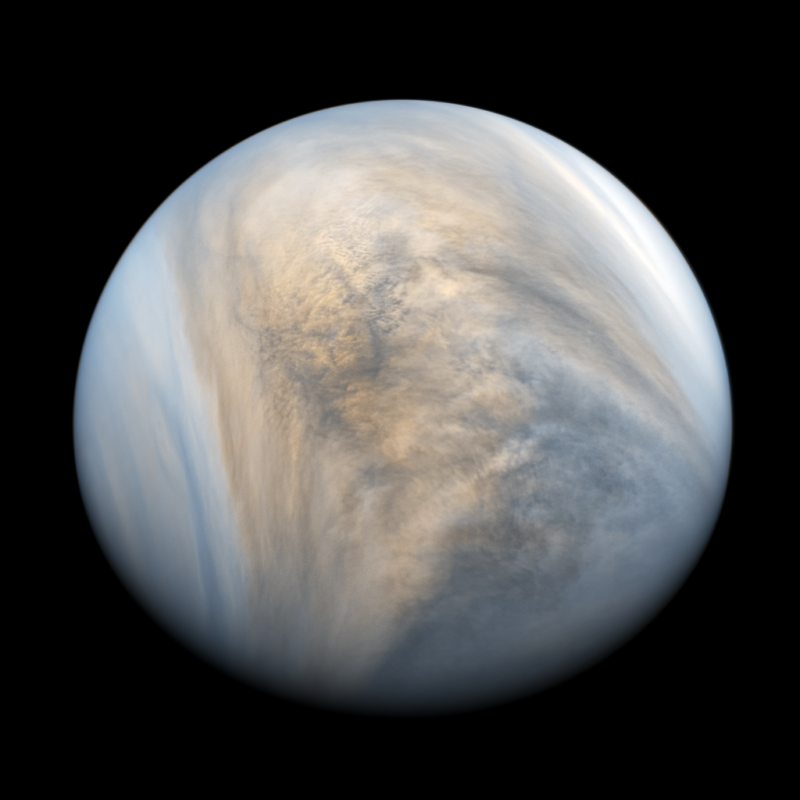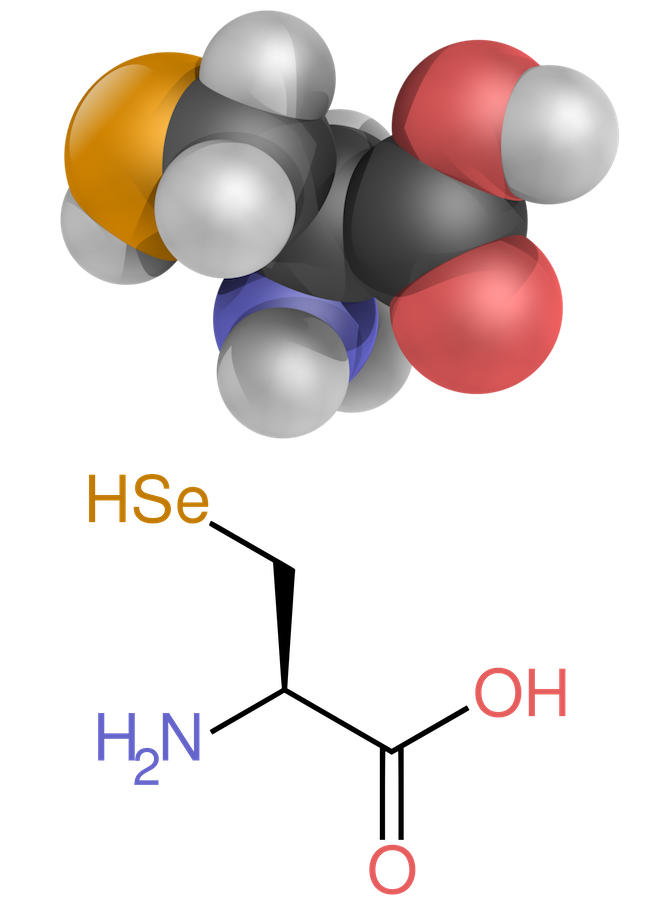
Could there be amino acids on Venus?
We know the clouds of Venus are filled with droplets of concentrated sulfuric acid. Could microbial life survive in that environment? Scientists are still debating that question, but some believe it can. On January 9, 2024, scientists in the U.S., U.K. and Poland said in a new study that biogenic amino acids – the building blocks of essential proteins in the genetic code of life – can indeed remain stable in such high sulfuric acid concentrations. And it suggests, what if Venus microbes use sulfuric acid for their biochemistry, much as earthly organisms use water?
The researchers’ new peer-reviewed paper, to be published in the journal Astrobiology, is available as a preprint on arXiv (January 9, 2024).
The 2024 lunar calendars are here! Best New Year’s gifts in the universe! Check ’em out here.
Alien biochemistry?
Is it possible that alien forms of life could use liquids other than water to support their biochemistry? Even sulfuric acid?
Science writer Leonard David wrote about the intriguing implications of this idea at Space.com. He quoted the new paper’s co-author – Janusz Petkowski at the Massachusetts Institute of Technology (MIT) in Cambridge, Massachusetts – as asking this same question:
The search for signs of life beyond Earth is a motivator in modern-day planetary exploration, but life on other planets does not have to have the same biochemistry as our life here on Earth. Life needs some sort of liquid medium to function, but does it always have to be water?
Therefore, it is important to understand the basic chemistry that happens in such potential alternative solvents for life, to assess if complex organic chemistry could form in them, be stable and soluble. On Earth, water is a dominant liquid, but other liquid solvents are also present in our solar system.
Could this actually be true for such an acidic environment as the clouds on Venus? Petkowski added:
If yes, then of course such life would be fundamentally different from life on Earth.
Indeed. After all, the droplets in Venus’ clouds – from about 30 miles to 40 miles (48 to 64 km) in altitude – range from 81% to 98% sulfuric acid. Only the small remaining percent is actually water. To be sure, that would be a challenge for most microbes to survive in, let alone thrive. Only some extremophiles on Earth could exist in those conditions.
The surprising stability of amino acids on Venus
The study found that amino acids on Venus would be surprisingly stable in the sulfuric acid droplets. The paper stated:
In this work, we study 20 biogenic amino acids at the range of Venus’ cloud sulfuric acid concentrations (81% and 98% w/w, the rest water) and temperatures. We find 19 of the biogenic amino acids we tested are either unreactive (13 in 98% w/w and 12 in 81% w/w) or chemically modified in the side chain only, after four weeks. Our major finding, therefore, is that the amino acid backbone remains intact in concentrated sulfuric acid. These findings significantly broaden the range of biologically relevant molecules that could be components of a biochemistry based on a concentrated sulfuric acid solvent.
Petkowski called finding that amino acids are stable in sulfuric acid an:
Unexpected discovery that further supports the notion that complex organic chemistry is possible in Venus’ concentrated sulfuric acid clouds, and that it is likely that organic chemistry is in fact present in Venus clouds.
These findings significantly broaden the range of biologically relevant molecules that could be components of a biochemistry based on a concentrated sulfuric acid solvent.
This is significant, since amino acids are the building blocks of proteins. And proteins are necessary for life, at least life on Earth.
Organic chemistry in Venus’ clouds?
Previous studies had also shown that some other key molecules necessary for life, like nucleic acid bases, could also remain stable in concentrated sulfuric acid. If amino acids on Venus can as well, then that opens up the possibility for some interesting organic chemistry going on in Venus’ clouds. Petkowski said that it:
Further supports the notion that complex organic chemistry is possible in Venus’ concentrated sulfuric acid clouds, and that it is likely that organic chemistry is in fact present in Venus clouds.

Further study of organic chemistry
Petkowski and his colleges have shown that amino acids could survive in Venus’ sulfuric acid droplets. Now, they want to further study the possibility of organic chemistry in the same environment. Could such chemistry actually be occurring now? Petkowski told Space.com:
We have shown that concentrated sulfuric acid is not universally hostile to organic chemistry and that surprisingly, many organics are stable and soluble for months, if not longer, in this aggressive solvent.
Future missions back to Venus
The privately funded Rocket Lab mission to Venus is now expected to launch in early 2025 (previously 2023). It will search for organic material in Venus’ clouds. Petkowski is the deputy principal investigator for the mission’s concept study.
NASA is also planning two new missions to Venus, DAVINCI+ and VERITAS. They are part of NASA’s Discovery Program. Each is expected to launch in the 2028-2030 timeframe. DAVINCI+ (Deep Atmosphere Venus Investigation of Noble gases, Chemistry, and Imaging) will measure the composition of Venus’ atmosphere to understand how it formed and evolved. It will also try to determine whether the planet ever had an ocean. VERITAS (Venus Emissivity, Radio Science, InSAR, Topography, and Spectroscopy) will map Venus’ surface to determine the planet’s geologic history. Scientists want to know why it developed so differently than Earth. It will also help determine whether some volcanoes on Venus are really still active, as other studies have suggested.
Bottom line: A new study shows that amino acids could survive in the sulfuric acid droplets in Venus’ clouds. And if there are amino acids on Venus, what about life itself?
Read more: Surprise! Plate tectonics helped create Venus’ hellscape
Read more: Active volcanoes on Venus found in Magellan data
The post Amino acids on Venus? New study says it’s possible first appeared on EarthSky.
0 Commentaires